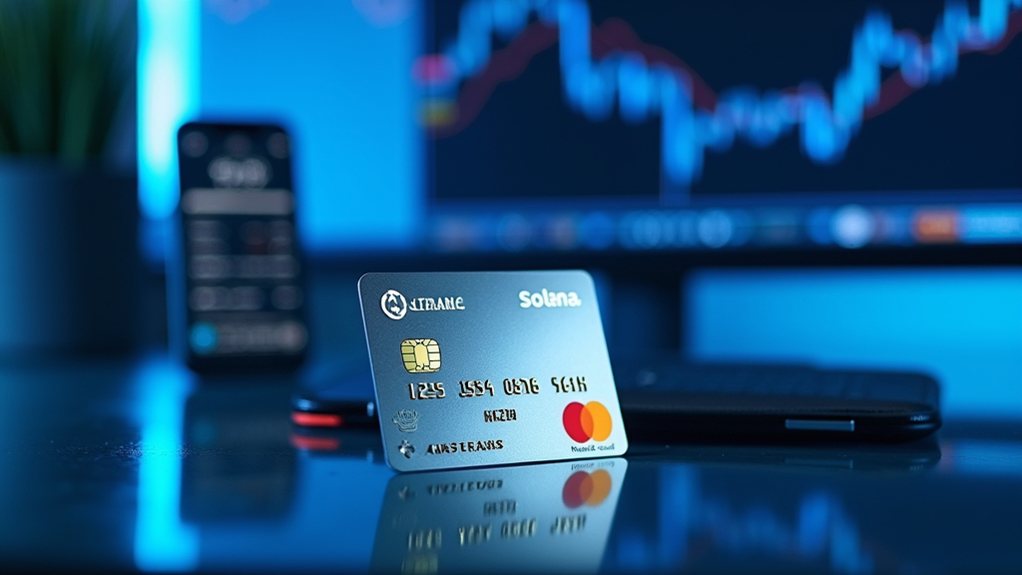The evolution of digital payment solutions has reached a significant milestone with Mastercard-backed cryptocurrency cards, which now serve as a crucial bridge between traditional financial systems and the burgeoning crypto economy. These innovative financial instruments enable users to spend major cryptocurrencies like Bitcoin and Ethereum at point-of-sale terminals worldwide, converting digital assets to fiat currency effortlessly during transactions.
The cards function similarly to conventional payment cards, allowing consumers to make purchases both online and in physical stores while maintaining integration with popular digital payment platforms such as Apple Pay and Google Pay. This seamless integration provides users with enhanced financial flexibility for managing both traditional and digital assets through a single payment method.
Seamlessly bridging digital and physical commerce, crypto cards work just like traditional plastic while fully supporting mobile wallet ecosystems.
Solana-based options have emerged as particularly disruptive alternatives in the market, with products like SolCard and Zebec Carbon offering zero annual fees, a stark contrast to traditional banking products. These Solana-integrated cards permit users to spend SOL tokens effortlessly across Mastercard’s extensive merchant network, while implementing robust security measures including encryption and two-factor authentication to safeguard user assets. These cards essentially function as efficient fiat off-ramps that provide reliable methods for converting digital assets back into traditional currencies for everyday spending.
The Zebec Carbon card, specifically designed for the Solana blockchain, supports stablecoin transactions without requiring users to link personal identities to their payment activities. Zebec Carbon emphasizes user privacy protection by ensuring transactions are not tied to personal identities.
A defining characteristic of these next-generation payment solutions is their instant activation capability, particularly valuable for U.S. residents who can begin using certain cards immediately without identity verification processes. Daily transaction limits typically range from $1,000 for reloads to $10,000 for spending, providing sufficient flexibility for routine financial activities.
Furthermore, many providers have implemented reward systems that return value to users, with some cards offering up to 4% back on specific purchase categories like gas and electric vehicle charging.
The global acceptance of Mastercard guarantees these crypto cards can be utilized at millions of merchant locations, effectively eliminating geographical barriers to cryptocurrency spending. Transaction processing occurs instantaneously, with crypto-to-fiat conversion happening behind the scenes, thereby offering users financial flexibility without compromising the practical convenience expected from modern payment methods.









